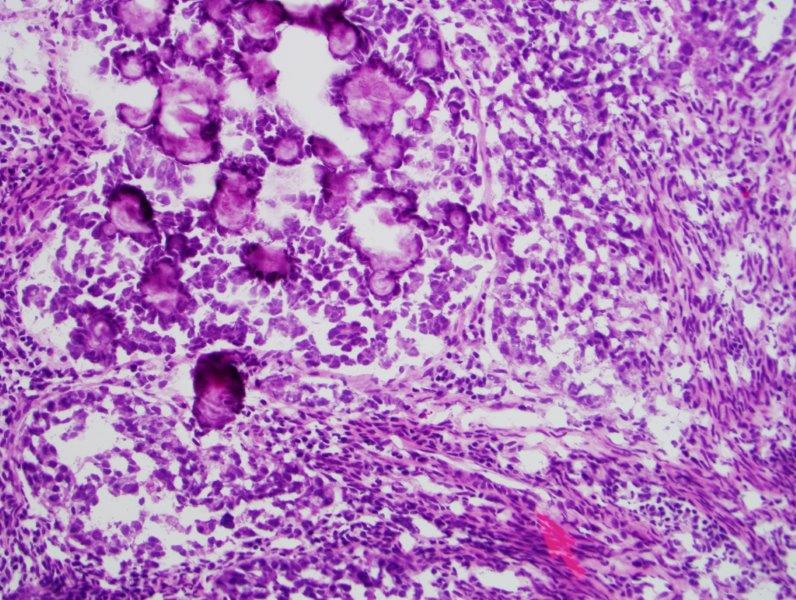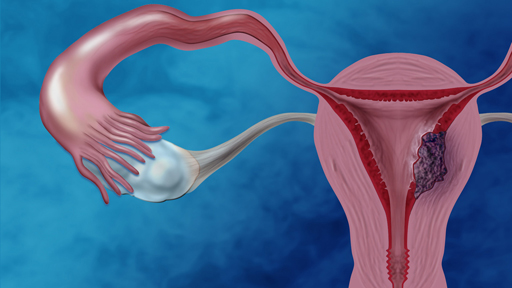Bell DW, Jhanwar SC, and Testa JR. Multiple regions of allelic loss from chromosome arm 6q in malignant mesothelioma. Cancer Res, 57:4057-4062. 1997. [PubMed]
Bell DW, Varley JM, Szydlo TE, Kang DH, Wahrer DCR, Shannon KE, Lubratovich M, Verselis SJ, Isselbacher KJ, Fraumeni JF, Birch JM, Li FP, Garber JE, and Haber DA. Heterozygous germline hCHK2 mutations in Li-Fraumeni Syndrome. Science, 286:2528-2531. 1999. [PubMed]
Cantor S, Bell DW, Ganesan S, Kass E, Drapkin R, Grossman S, Wahrer DCR, Sgroi DC, Lane W, Haber DA, and Livingston DM. BACH1, a novel helicase-like protein, interacts with BRCA1 and contributes to its biochemical and clinical functions. Cell, 105:149-160. 2001. [PubMed]
Moberg KH, Bell DW, Wahrer DCR, Haber DA, and Hariharan IK. Archipelago regulates Cyclin E levels in Drosophila and is mutated in human cancer cell lines. Nature, 413:311-316. 2001. [PubMed]
*Lynch TJ, *Bell DW, *Sordella R, Gurubhagavatula S, Okimoto RA, Brannigan BW, Harris PL, Haserlat SM, Supko JG, Haluska FG, Louis DN, Christiani DC, Settleman J, and Haber DA. Activating mutations in the epidermal growth factor receptor underlying responsiveness of non-small-cell lung cancer to gefitinib. N Engl J Med, 350:2129-2139. 2004. * Equal authorship. [PubMed]
Sordella R, Bell DW, Haber DA, and Settleman J. Gefitinib-sensitizing EGFR mutations in lung cancer activate anti-apoptotic pathways. Science, 305:1163-1167. 2004. [PubMed]
*Kwak EL, *Sordella R, *Bell DW, *Godin-Heymann N, Okimoto RA, Brannigan BW, Harris PL, Driscoll DR, Fidias P, Lynch T, Sharma SV, Settleman J, and Haber DA. Irreversible inhibitors of the epidermal growth factor receptor may circumvent acquired resistance to gefitinib. Proc Natl Acad Sci (USA), 102:7665-7670. 2005. * Equal authorship. [PubMed]
Bell DW, Gore I, Okimoto RA, Godin-Heymann N, Sordella R, Mulloy R, Sharma SV, Brannigan BW, Mohapatra G, Settleman J, and Haber DA. Inherited susceptibility to lung cancer may be associated with the T790M drug resistance mutation in EGFR. Nat Genet, 37:1315-1316. 2005. [PubMed]
Cohen EE, Lingen MW, Martin LE, Harris PL, Brannigan BW, Haserlat SM, Okimoto RA, Sgroi DC, Dahiya S, Muir B, Clark JR, Rocco JW, Vokes EE, Haber DA, and Bell DW. The response of some head and neck cancers to EGFR tyrosine kinase inhibitors may be linked to mutation of ERBB2 rather than EGFR. Clin Cancer Res, 11:8105-8108. 2005. [PubMed]
Rivera MN, Kim WJ, Wells J, Driscoll DR, Brannigan BW, Han M, Kim JC, Feinberg AP, Gerald WL, Vargas SO, Chin L, Iafrate AJ, Bell DW, and Haber DA. An X chromosome gene, WTX, is commonly inactivated in Wilms tumor. Science, 315:642-645. 2007. [PubMed]
Bell DW. Our changing view of the genomic landscape of cancer. J Pathol, 220:231-43. 2010. [PubMed]
Rudd ML, Price JC, Fogoros SK, Godwin AK, Sgroi, DC, Merino M, and Bell DW. A unique spectrum of PIK3CA (p110alpha) mutations within primary endometrial carcinomas. Clin Cancer Res, 17:1331-40. 2011. [PubMed]
Urick ME, Rudd ML, Godwin AK, Sgroi, DC, Merino M, and Bell DW. PIK3R1 (p85a) is somatically mutated at high frequency in primary endometrial cancer. Cancer Res, 71:4061-67. 2011. [PubMed]
Bell DW, Sikdar N, Lee Y-Y, Price JC, Chatterjee R, Park H-D, Fox J, Ishiai M, Rudd ML, Pollock LM, Fogoros SF, Mohamed H, Hanigan CL, NISC, Zhang S, Cruz P, Renaud G, Hansen NF, Cherukuri PF, Borate B, McManus KJ, Stoepel J, Sipahimalani P, Godwin AK, Sgroi DC, Merino MJ, Elliot G, Elkahloun A, Vinson C, Takata M, Mullikin JC, Wolfsberg TG, Hieter P, Lim D-S, and Myung K. Predisposition to cancer caused by genetic and functional defects of mammalian Atad5. PLoS Genetics, 7:e1002245, 2011. [PubMed]
O'Hara AJ, and Bell DW. The genomics and genetics of endometrial cancer (Review). Adv Genomics Genet, 2012:33-47, 2012. [PubMed]
Le Gallo M, O'Hara AJ, Rudd ML, Urick ME, Hansen NF, O'Neil NJ, Price JC, Zhang S, England BM, Godwin AK, Sgroi DC, NISC Comparative Sequencing Program, Hieter P, Mullikin JC, Merino MJ, and Bell DW. Exome sequencing of serous endometrial tumors identifies recurrent somatic mutations in chromatin-remodeling and ubiquitin ligase complex genes. Nat Genet, 44:1310-1315. 2012. [PubMed]
Sánchez-Vega F, Gotea V, Petrykowska HM, Margolin G, Krivak TC, DeLoia JA, Bell DW, and Elnitski L. Recurrent patterns of DNA methylation in the ZNF154, CASP8 and VHL promoters across a wide spectrum of human solid epithelial tumors and cancer cell lines. Epigenetics, 8:1355-1372. 2013. [https://www.ncbi.nlm.nih.gov/pubmed/24149212]
Price JC, Pollock LM, Rudd ML, Fogoros SK, Mohamed H, Hanigan CL, Le Gallo M, NIH Intramural Sequencing Center (NISC) Comparative Sequencing Program, Zhang S, Cruz P, Cherukuri P, Hansen NF, McManus KJ, Godwin AK, Sgroi DC, Mullikin JC, Merino MJ, Hieter P, and Bell DW. Sequencing of candidate chromosome instability genes in endometrial cancers reveals somatic mutations in ESCO1, CHTF18, and MRE11A. PLoS One, 8:e63313, 2013. [PubMed]
The Cancer Genome Atlas Research Network, Kandoth C, Schultz N, Cherniack AD, Akbani R, Liu Y, Shen H, Robertson AG, Pashtan I, Shen R, Benz CC, Yau C, Laird PW, Ding L, Zhang W, Mills GB, Kucherlapati R, Mardis ER, and Levine DA. Integrated genomic characterization of endometrial carcinoma. Nature, 497:67-7. 2013. [PubMed]
Le Gallo M and Bell DW. The emerging genomic landscape of endometrial cancer (Review). Clin Chem, 60:98-110. 2014. [PubMed]
Bell DW. Novel genetic targets in endometrial cancer (Editorial). Expert Opin Ther Targets, 18:10.1517/14728222.2014.909414, 2014. [PubMed]
Rudd ML, Mohamed H, Price JC, O’Hara AJ, Le Gallo M, Urick ME, NISC Comparative Sequencing Program, Cruz P, Zhang S, Hansen NF, Godwin AK, Sgroi DC, Wolfsberg TG, Mullikin JC, Merino MJ, and Bell DW. Mutational analysis of the tyrosine kinome in serous and clear cell endometrial cancer uncovers rare somatic mutations in TNK2 and DDR1. BMC Cancer, 14:884. 2014. [PubMed]
Hong B, Le Gallo M, and Bell DW. The mutational landscape of endometrial cancer. (Review). Curr Opin Genetics Dev, 30:25-31. 2015. [PubMed]
Margolin G, Petrykowska HM, Jameel N, Bell DW, Young A, and Elnitski L. Robust detection of DNA hypermethylation of ZNF154 as a pan-cancer locus with in silico modeling for blood-based diagnostic development. J Mol Diagn, 18:283-298. 2016. [PubMed]
Felix AS, Yang HP, Bell DW, and Sherman ME. Epidemiology of endometrial carcinoma: Etiologic importance of hormonal and metabolic influences. (Review). Adv Exp Med Biol, 943:3-46. 2017. [PubMed]
Le Gallo M, Lozy F, and Bell DW. Next-generation sequencing. (Review). Adv Exp Med Biol, 943:119-148. 2017. [PubMed]
Le Gallo M, Rudd ML, Urick ME, Hansen NF, Zhang S, NISC Comparative Sequencing Program, Lozy F, Sgroi DC, August Vidal Bel A, Matias-Guiu X, Broaddus RR, Lu KH, Levine DA, Mutch DG, Goodfellow, PJ, Salvesen HB, Mullikin JC, and Bell DW. Somatic mutation profiles of clear cell endometrial tumors revealed by whole exome and targeted gene sequencing. Cancer, 123:3261-3268. 2017. [PubMed]
MacKay H, Levine DA, Bae-Jump V, Bell DW, McAlpine JN, Santin A, Fleming G, Mutch DG, Nephew K, Wentzensen N, Goodfellow PJ, Dorigo O, Nijman H, Broaddus RR, and Kohn E. Moving forward with actionable therapeutic targets and opportunities in endometrial cancer: NCI clinical trials planning meeting report on identifying key genes and molecular pathways for targeted endometrial cancer trials. Oncotarget, 8:84579-84594. 2017. [PubMed]
Urick ME, and Bell DW. The genomics of endometrial cancer. In: Birrer, MJ, and Ceppi L (eds). Translational advances in gynecologic cancers. 2017. Elsevier Inc, Cambridge, MA. pp 199-227.
Urick ME, Rudd ML, and Bell DW. Molecular pathology of serous carcinoma. In: Deavers MT and Coffey DM (eds). Precision molecular pathology of uterine cancer. 2017. Springer. pp 87-122.
Le Gallo M, Rudd ML, Urick ME, Hansen NF, NISC Comparative Sequencing Program, Merino MJ, Mutch DG, Goodfellow PJ, Mullikin JC, and Bell DW. The FOXA2 transcription factor is frequently somatically mutated in uterine carcinosarcomas and carcinomas. Cancer, 124:65-73. 2018. [PubMed]
Urick ME, and Bell DW. In vitro effects of FBXW7 mutation in serous endometrial cancer: increased levels of potentially druggable proteins and sensitivity to SI-2 and dinaciclib. Mol Carcinog, doi: 10.1002/mc.22867. 2018. [PubMed]








